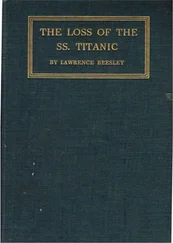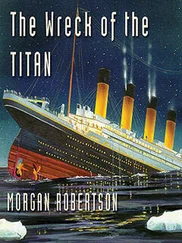Theodore Dreiser - The Titan
Здесь есть возможность читать онлайн «Theodore Dreiser - The Titan» весь текст электронной книги совершенно бесплатно (целиком полную версию без сокращений). В некоторых случаях можно слушать аудио, скачать через торрент в формате fb2 и присутствует краткое содержание. Жанр: Классическая проза, на английском языке. Описание произведения, (предисловие) а так же отзывы посетителей доступны на портале библиотеки ЛибКат.
- Название:The Titan
- Автор:
- Жанр:
- Год:неизвестен
- ISBN:нет данных
- Рейтинг книги:5 / 5. Голосов: 1
-
Избранное:Добавить в избранное
- Отзывы:
-
Ваша оценка:
- 100
- 1
- 2
- 3
- 4
- 5
The Titan: краткое содержание, описание и аннотация
Предлагаем к чтению аннотацию, описание, краткое содержание или предисловие (зависит от того, что написал сам автор книги «The Titan»). Если вы не нашли необходимую информацию о книге — напишите в комментариях, мы постараемся отыскать её.
The Titan — читать онлайн бесплатно полную книгу (весь текст) целиком
Ниже представлен текст книги, разбитый по страницам. Система сохранения места последней прочитанной страницы, позволяет с удобством читать онлайн бесплатно книгу «The Titan», без необходимости каждый раз заново искать на чём Вы остановились. Поставьте закладку, и сможете в любой момент перейти на страницу, на которой закончили чтение.
Интервал:
Закладка:
“Do you see what he’s up to, Hosmer?” inquired Schryhart of Hand. “He sees that we have him scotched here in Chicago. As things stand now he can’t go into the city council and ask for a franchise for more than twenty years under the state law, and he can’t do that for three or four years yet, anyhow. His franchises don’t expire soon enough. He knows that by the time they do expire we will have public sentiment aroused to such a point that no council, however crooked it may be, will dare to give him what he asks unless he is willing to make a heavy return to the city. If he does that it will end his scheme of selling any two hundred million dollars of Union Traction at six per cent. The market won’t back him up. He can’t pay twenty per cent. to the city and give universal transfers and pay six per cent. on two hundred million dollars, and everybody knows it. He has a fine scheme of making a cool hundred million out of this. Well, he can’t do it. We must get the newspapers to hammer this legislative scheme of his to death. When he comes into the local council he must pay twenty or thirty per cent. of the gross receipts of his roads to the city. He must give free transfers from every one of his lines to every other one. Then we have him. I dislike to see socialistic ideas fostered, but it can’t be helped. We have to do it. If we ever get him out of here we can hush up the newspapers, and the public will forget about it; at least we can hope so.”
In the mean time the governor had heard the whisper of “boodle”—a word of the day expressive of a corrupt legislative fund. Not at all a small-minded man, nor involved in the financial campaign being waged against Cowperwood, nor inclined to be influenced mentally or emotionally by superheated charges against the latter, he nevertheless speculated deeply. In a vague way he sensed the dreams of Cowperwood. The charge of seducing women so frequently made against the street-railway magnate, so shocking to the yoked conventionalists, did not disturb him at all. Back of the onward sweep of the generations he himself sensed the mystic Aphrodite and her magic. He realized that Cowperwood had traveled fast—that he was pressing to the utmost a great advantage in the face of great obstacles. At the same time he knew that the present street-car service of Chicago was by no means bad. Would he be proving unfaithful to the trust imposed on him by the great electorate of Illinois if he were to advantage Cowperwood’s cause? Must he not rather in the sight of all men smoke out the animating causes here—greed, over-weening ambition, colossal self-interest as opposed to the selflessness of a Christian ideal and of a democratic theory of government?
Life rises to a high plane of the dramatic, and hence of the artistic, whenever and wherever in the conflict regarding material possession there enters a conception of the ideal. It was this that lit forever the beacon fires of Troy, that thundered eternally in the horses’ hoofs at Arbela and in the guns at Waterloo. Ideals were here at stake—the dreams of one man as opposed perhaps to the ultimate dreams of a city or state or nation—the grovelings and wallowings of a democracy slowly, blindly trying to stagger to its feet. In this conflict—taking place in an inland cottage-dotted state where men were clowns and churls, dancing fiddlers at country fairs—were opposed, as the governor saw it, the ideals of one man and the ideals of men.
Governor Swanson decided after mature deliberation to veto the bill. Cowperwood, debonair as ever, faithful as ever to his logic and his conception of individuality, was determined that no stone should be left unturned that would permit him to triumph, that would carry him finally to the gorgeous throne of his own construction. Having first engineered the matter through the legislature by a tortuous process, fired upon at every step by the press, he next sent various individuals—state legislators, representatives of the C. W. & I., members of outside corporations to see the governor, but Swanson was adamant. He did not see how he could conscientiously sanction the bill. Finally, one day, as he was seated in his Chicago business office—a fateful chamber located in the troublesome building which was subsequently to wreck his fortune and which was the raison d’etre of a present period of care and depression—enter the smug, comfortable presence of Judge Nahum Dickensheets, at present senior counsel of the North Chicago Street Railway. He was a very mountain of a man physically—smooth-faced, agreeably clothed, hard and yet ingratiating of eye, a thinker, a reasoner. Swanson knew much of him by reputation and otherwise, although personally they were no more than speaking acquaintances.
“How are you, Governor? I’m glad to see you again. I heard you were back in Chicago. I see by the morning papers that you have that Southack public-service bill up before you. I thought I would come over and have a few words with you about it if you have no objection. I’ve been trying to get down to Springfield for the last three weeks to have a little chat with you before you reached a conclusion one way or the other. Do you mind if I inquire whether you have decided to veto it?”
The ex-judge, faintly perfumed, clean and agreeable, carried in his hand a large-sized black hand-satchel which he put down beside him on the floor.
“Yes, Judge,” replied Swanson, “I’ve practically decided to veto it. I can see no practical reason for supporting it. As I look at it now, it’s specious and special, not particularly called for or necessary at this time.”
The governor talked with a slight Swedish accent, intellectual, individual.
A long, placid, philosophic discussion of all the pros and cons of the situation followed. The governor was tired, distrait, but ready to listen in a tolerant way to more argument along a line with which he was already fully familiar. He knew, of course, that Dickensheets was counsel for the North Chicago Street Railway Company.
“I’m very glad to have heard what you have to say, Judge,” finally commented the governor. I don’t want you to think I haven’t given this matter serious thought—I have. I know most of the things that have been done down at Springfield. Mr. Cowperwood is an able man; I don’t charge any more against him than I do against twenty other agencies that are operating down there at this very moment. I know what his difficulties are. I can hardly be accused of sympathizing with his enemies, for they certainly do not sympathize with me. I am not even listening to the newspapers. This is a matter of faith in democracy—a difference in ideals between myself and many other men. I haven’t vetoed the bill yet. I don’t say that something may not arise to make me sign it. My present intention, unless I hear something much more favorable in its behalf than I have already heard, is to veto it.
“Governor,” said Dickensheets, rising, “let me thank you for your courtesy. I would be the last person in the world to wish to influence you outside the line of your private convictions and your personal sense of fair play. At the same time I have tried to make plain to you how essential it is, how only fair and right, that this local street-railway-franchise business should be removed out of the realm of sentiment, emotion, public passion, envy, buncombe, and all the other influences that are at work to frustrate and make difficult the work of Mr. Cowperwood. All envy, I tell you. His enemies are willing to sacrifice every principle of justice and fair play to see him eliminated. That sums it up.”
“That may all be true,” replied Swanson. “Just the same, there is another principle involved here which you do not seem to see or do not care to consider—the right of the people under the state constitution to a consideration, a revaluation, of their contracts at the time and in the manner agreed upon under the original franchise. What you propose is sumptuary legislation; it makes null and void an agreement between the people and the street-railway companies at a time when the people have a right to expect a full and free consideration of this matter aside from state legislative influence and control. To persuade the state legislature, by influence or by any other means, to step in at this time and interfere is unfair. The propositions involved in those bills should be referred to the people at the next election for approval or not, just as they see fit. That is the way this matter should be arranged. It will not do to come into the legislature and influence or buy votes, and then expect me to write my signature under the whole matter as satisfactory.”
Читать дальшеИнтервал:
Закладка:
Похожие книги на «The Titan»
Представляем Вашему вниманию похожие книги на «The Titan» списком для выбора. Мы отобрали схожую по названию и смыслу литературу в надежде предоставить читателям больше вариантов отыскать новые, интересные, ещё непрочитанные произведения.
Обсуждение, отзывы о книге «The Titan» и просто собственные мнения читателей. Оставьте ваши комментарии, напишите, что Вы думаете о произведении, его смысле или главных героях. Укажите что конкретно понравилось, а что нет, и почему Вы так считаете.










